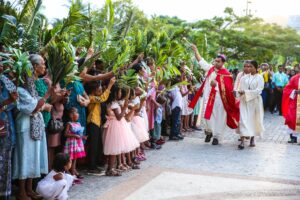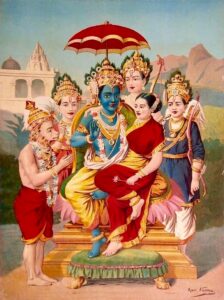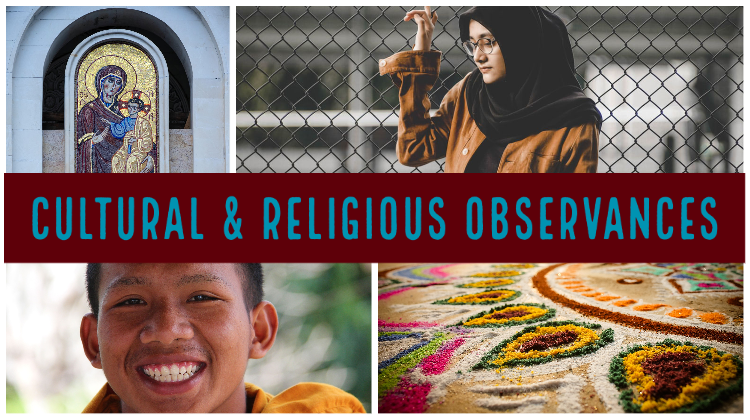Qingming Festival

Culture/religion: Chinese heritage
Date: April 5
With a history of over 2,500 years, Qingming, also known as Tomb Sweeping Day is an important day of sacrifice for most people in honoring their ancestors.
One of the most popular activities on this day is to show respect to one’s ancestors by visiting their graves, offering food, burning incense and burning or offering joss paper (representing money). Sweeping the tombs and performing other types of upkeep and repair, such as removing weeds and adding fresh soil is also done during the visit.
Sources:
Qingming Festival 2020, China Highlights
National Tartan Day

Culture/religion: National observance
Date: April 6
National Tartan Day was first recognized in the United States in 1997, but it was only a single-year U.S. Senate Resolution. In 1998, the day was given permanent recognition when the U.S. Senate passed a resolution marking April 6 as National Tartan Day. In 2005, the House of Representatives passed a companion resolution.
April 6 was chosen as the date to recognize National Tartan Day because it commemorates the signing of the Declaration of Arbroath in 1320, asserting Scotland’s sovereignty over English territorial claims. The Declaration of Arbroath influenced the writing of the American Declaration of Independence.
Sources:
About National Tartan Day: April 6, American Scottish Foundation
Palm Sunday

Culture/religion: Christianity
Date: April 10
Palm Sunday, also known as Passion Sunday in some Christian churches, is the sixth Sunday of Lent and the final Sunday before Easter. Itis a day when Christians celebrate the triumphal entry of Jesus Christ into Jerusalem the week before the Lord’s death and resurrection.
A tradition in many churches is to distribute palm branches to the congregation for the customary observances of a reading of the account of Christ’s entry into Jerusalem, the carrying and waving of palm branches in processional, the blessings of the palms, the singing of the traditional hymns and making small crosses with palm fronds.
Palm Sunday marks the beginning of Holy Week, a solemn week focusing on the final days of Jesus’ life.
Sources:
What is Palm Sunday?, Learn Religions
Rama Navami

Culture/religion: Hindu
Date: April 10
Rama Navami commemorates the day Lord Rama, the seventh incarnation of Lord Vishnu, incarnated in human form in the land of Ayodhya. This day falls on the ninth day in the month of Chaitra and coincides with Vasant Navratri. Therefore, the festival is spread over nine days in some regions. Celebrated as the birthday of Lord Rama, it is also the observance of the marriage day of Rama and Sita.
The story of Lord Rama is one of good versus evil and the man who destroyed the demon king, Ravana.
Observance of the day varies among locations, but include Bhajan programs at home and at Temples; cleaning the home and displaying pictures of Lord Rama, Lakshman, Sita and Hanuman on a dais in preparation for the Puja; a two-day fair in Ayodhya with thousands of devotees in attendance; and Temples re-enacting the marriage of Lord Rama and Sita to commemorate the event.
Sources:
Rama Navami, Hindupedia.com

